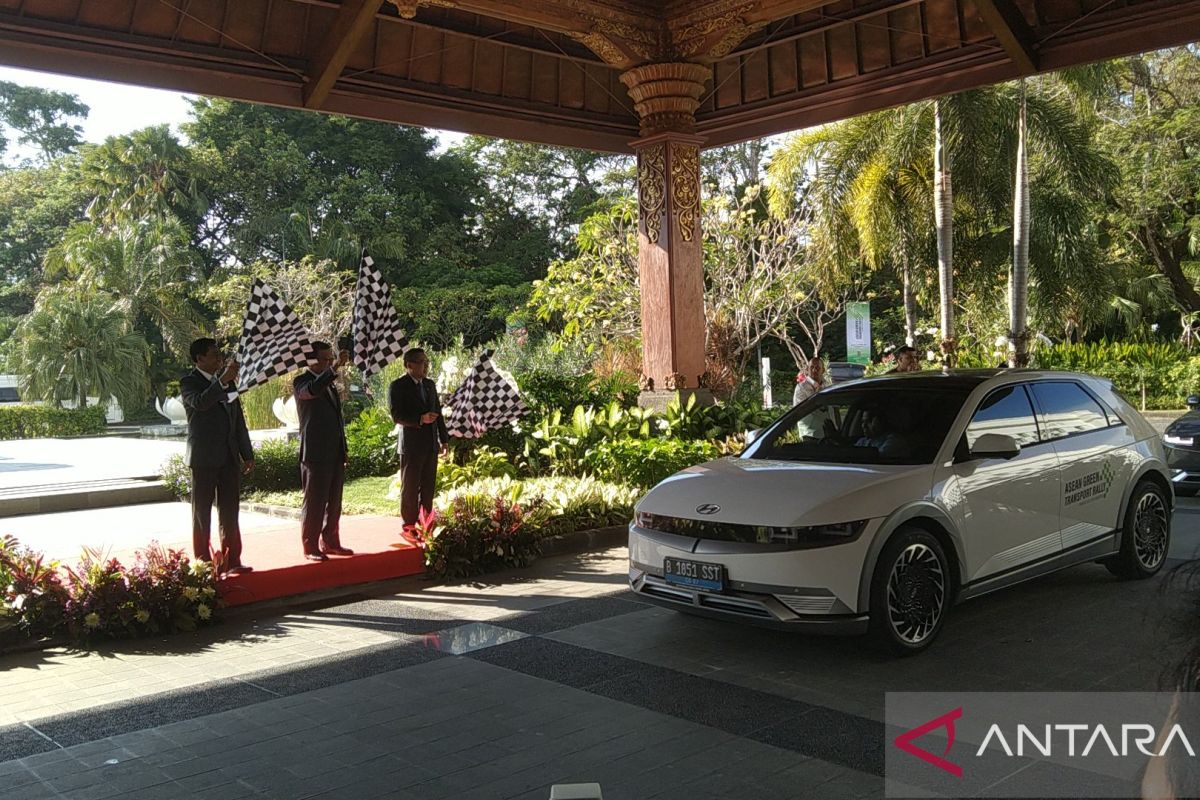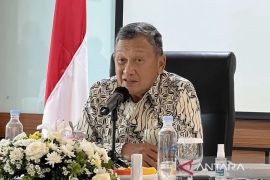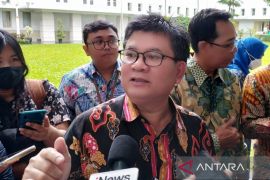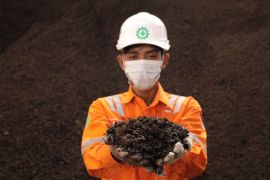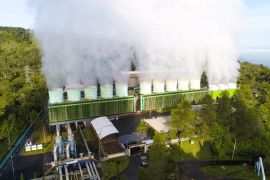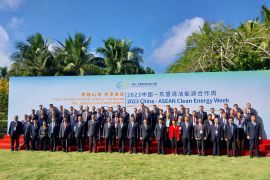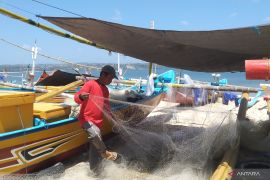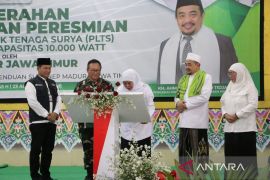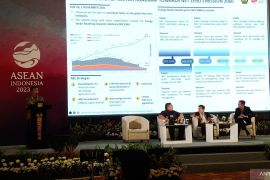"This is our effort to support the target of zero carbon emissions in the transportation sector," ACE Corporate Relations Manager Andy Tirta stated in Nusa Dua, Badung District, Bali, Thursday.
The rally, named the ASEAN Green Transport Rally (GTR), was en route to Bali through Cirebon, Semarang, and halted briefly in Surabaya to carry out the campaign.
The environmentally friendly vehicles campaign has been implemented since August 20, 2023.
The rally, using electric vehicles, hybrid vehicles, and biofuel vehicles, was welcomed by Indonesia's ESDM Minister Arifin Tasrif accompanied by Minister of Energy and Mining of Laos Phosay Sayasone and Deputy Minister of Mining and Energy of Cambodia Victor Jona.
Meanwhile, Head of the Communication Bureau of the Public Information Services and Cooperation of the ESDM Ministry Agung Pribadi explained that the action initiated by the Directorate General of the New, Renewable Energy, and Energy Conservation (EBTKE) also resulted in the success of Indonesia's Chairmanship in the ASEAN 2023.
"Once having arrived in Surabaya on August 21, 2023, campaign activities were also carried out with the theme of environmentally friendly fueled vehicles," he remarked.
Earlier, the opening and release of the ASEAN GTR 2023 was conducted at the office of the Secretariat General of the ESDM Ministry on August 20, 2023. The activity was opened by Director General of EBTKE Yudo Dwinanda Priaadi and Executive Director of ACE Nuki Agya Utama.
The Indonesian Government has a target of reducing carbon emissions by 93 percent in 2060 to 129.4 million tons of CO2 equivalent, from an estimated 1,927.4 million tons of CO2 equivalent from business activities, such as industry, housing, transportation, commerce, and power plants.
The strategies include conducting electrification, biofuel development, and early retirement of coal-fired power plants as well as using new sources of energy, such as hydrogen and ammonia, in addition to driving energy efficiency.
Another strategy is the application of the carbon capture, utilization and storage (CCS/CCUS) technology.
Related news: Indonesia implements blended financing to achieve clean energy by 2060
Related news: Bali discusses 2045 emissions target with international organizations
Related news: UAE-based firm shows interest in IKN clean energy investment
Translator: Dewa Ketut Sudiarta Wiguna, Cindy Frishanti Octavi
Editor: Sri Haryati
Copyright © ANTARA 2023
